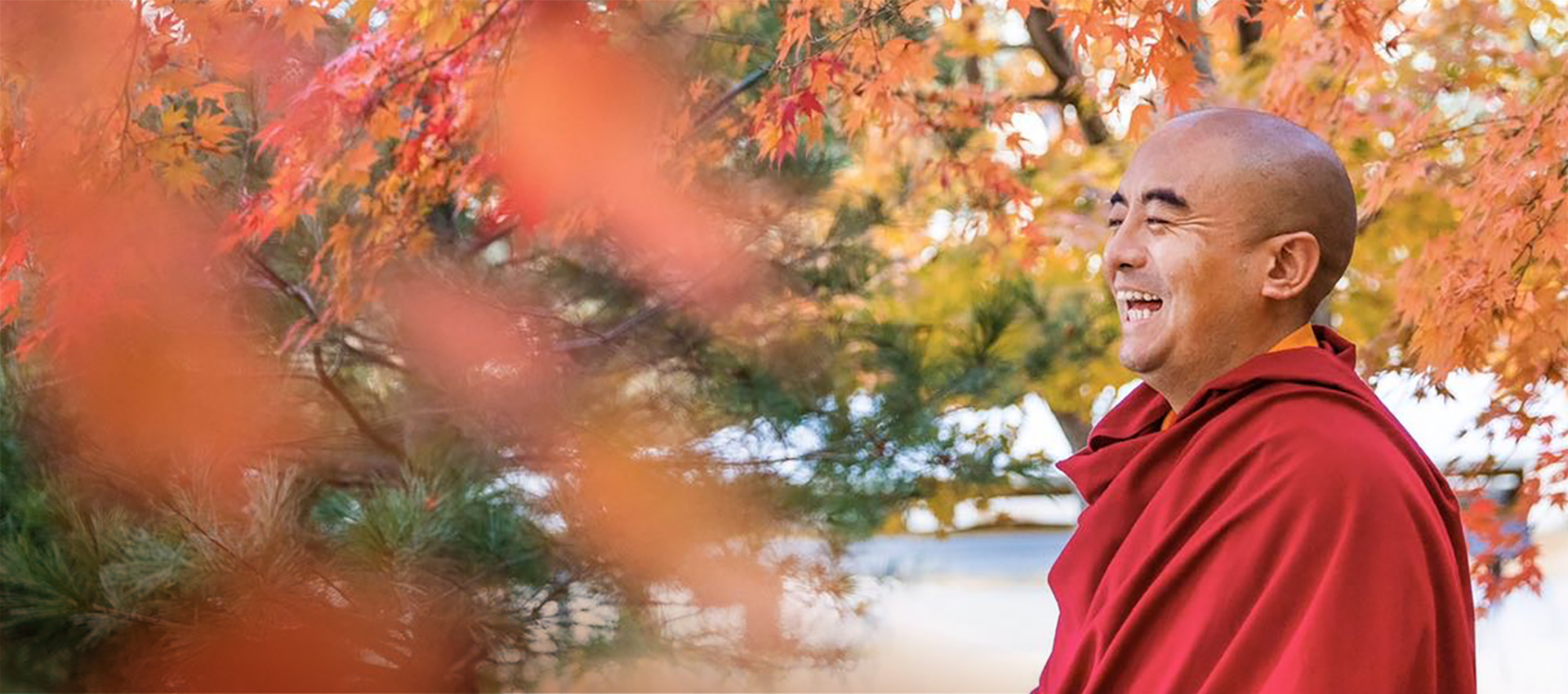
The Joy of Living is a path of meditation study and practice that can be followed by anyone, regardless of religious or cultural background.
It was designed by Mingyur Rinpoche to fulfill two primary needs:
The goal of this program is to help us discover a lasting contentment that is not subject to the fluctuating conditions of our lives and to nurture the qualities of wisdom and compassion that naturally manifest from awareness itself. Meditation is taught as a practical tool to explore the landscape of the heart and mind and uncover the richness of the present moment.
The practices taught in the Joy of Living, though rooted in the ancient Buddhist teachings of Tibet, are not religious in nature. They address basic qualities of the mind, such as mindful awareness and the movements toward happiness and away from suffering. By working with these qualities of mind, we gradually transform our relationship with present-moment experience, learning to approach every thought, feeling, and sensory experience with unconditional warmth and acceptance.
There are three levels of meditation training in the Joy of Living program, each of them focusing on discovering and nurturing a different quality of present-moment experience.
In Joy of Living Level 1: Calming the Mind, we learn how awareness itself is a source of lasting contentment and how we can use any experience, even painful feelings and difficult thoughts, as a gateway to inner peace.
In Joy of Living Level 2: Opening the Heart, we see how the simple desires to be happy and free from suffering are rooted in loving-kindness and compassion, and how we can nurture these qualities and extend them to others.
In Joy of Living Level 3: Awakening Wisdom, we learn how rigid beliefs keep us locked in a cycle of dissatisfaction and anxiety, and how relating to things as they actually are, rather than through the distorting lens of preconceived ideas and emotional reactions, can help us discover the basic purity and goodness of our true nature.